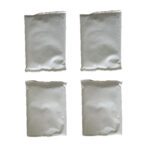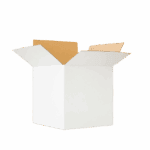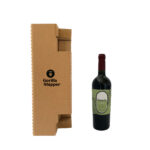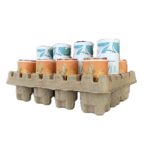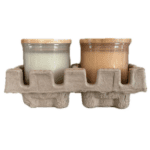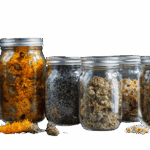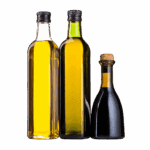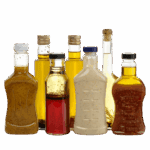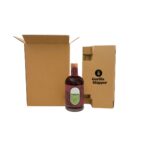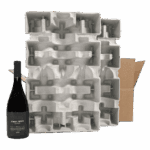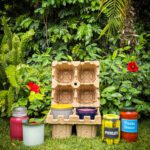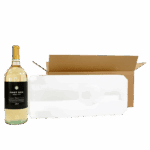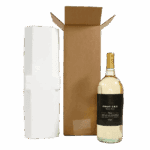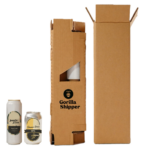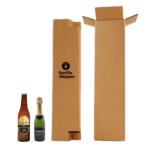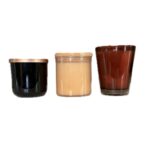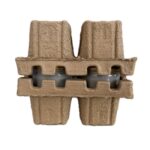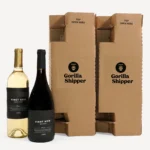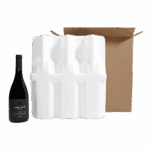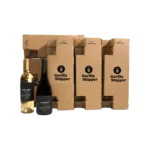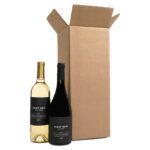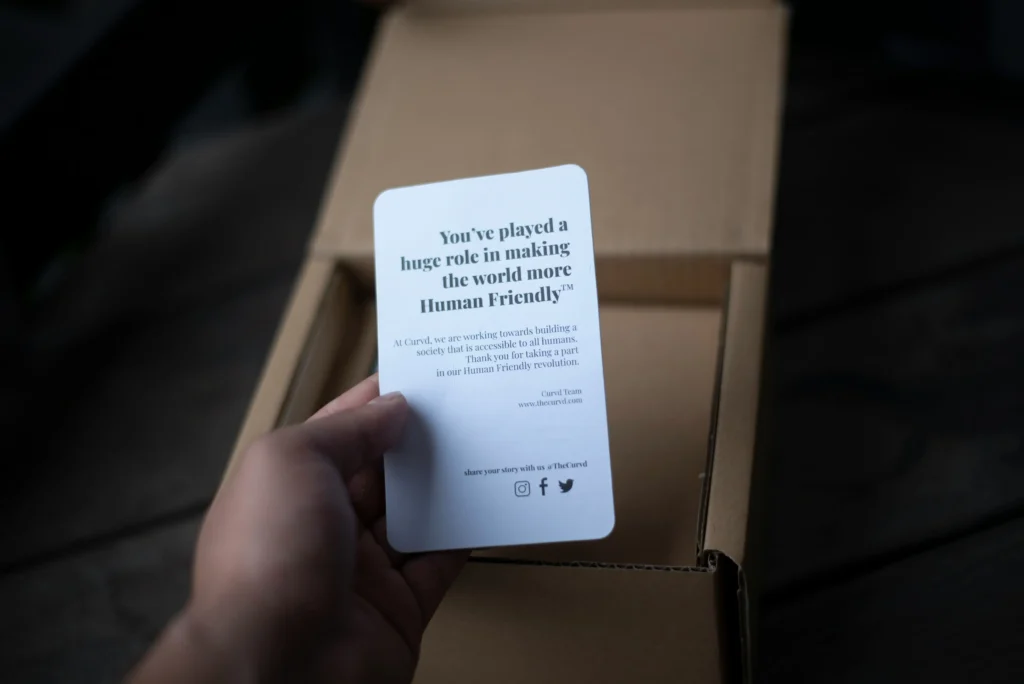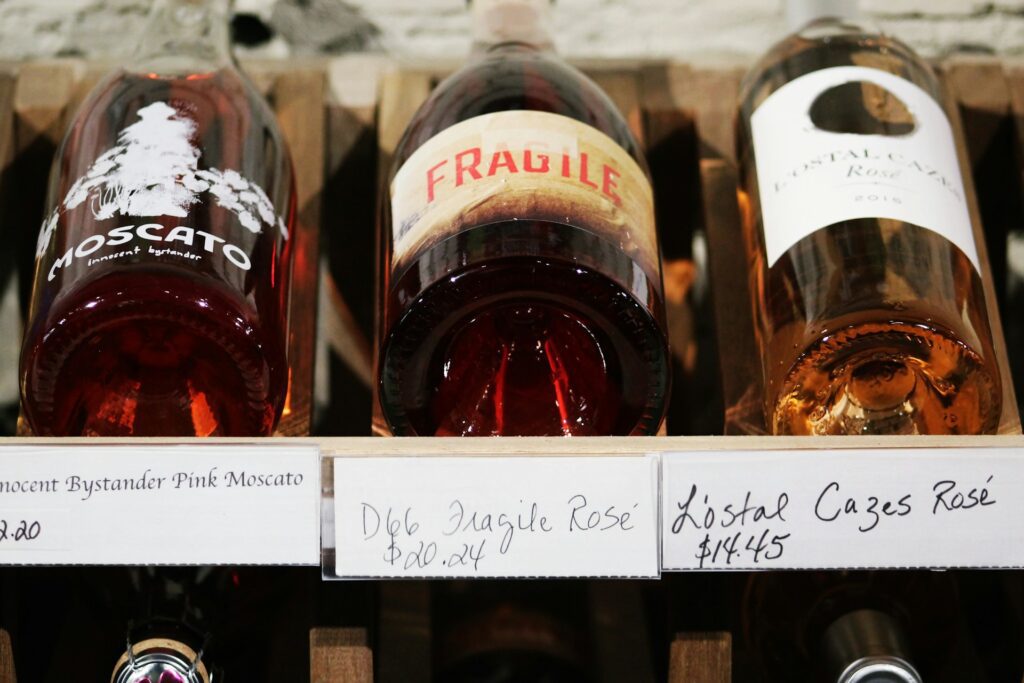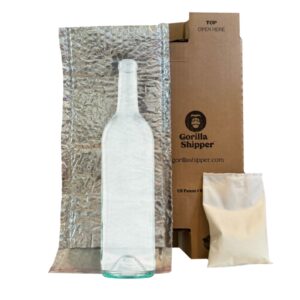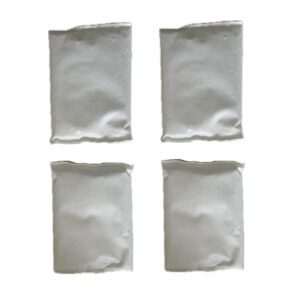Environmentally-Friendly Alternatives to Styrofoam Packaging
Styrofoam is losing its appeal as a packaging solution. For decades, drink cups, food containers, and shipping materials were all made from this substance. But times have changed. We now know that it causes serious environmental problems.
With a 500-year lifespan, styrofoam infests landfills all over the planet. The impact is not just limited to our ecosystems. Wildlife often mistake plastic foam fragments for food and fill their bellies with it.
As businesses and consumers, we can drive change by choosing alternatives to styrofoam packaging. Here are nine innovative options you can adopt now to do your part for the planet.
1. Corrugated Cardboard
We see corrugated cardboard all around us. It’s that reliable packaging solution that stands out. Strength and reliability make it a top choice. Fluted layers absorb impact, protecting the contents of the packaging from damage. Its lightweight and versatile design makes it the go-to styrofoam alternative.
What adds to its appeal is its sustainability. Every corrugated cardboard box and insert can be recycled to create new products, contributing to a circular economy. But it doesn’t stop there. Corrugated cardboard breaks down completely within one year, helping reduce waste buildup.
Corrugated cardboard is more than eco-friendly and versatile. It’s budget-friendly as well. With its widespread availability, switching to this styrofoam alternative is a breeze. No wonder more businesses are choosing corrugated boxes as their primary packaging option.
2. Mushroom Packaging
Mushroom packaging is an intriguing blend of science and nature. It’s made from mycelium and is biodegradable, compostable, and provides excellent protection. Manufacturers in industries with fragile items, like electronics, will find it matches the shock absorption capabilities of traditional styrofoam. And there are no environmental drawbacks.
Its advantages don’t end there. Growing trends toward eco-friendly practices and a commitment to reducing waste have inspired experimentation with this material as a styrofoam alternative. Additionally, research developments continually uncover new possibilities and enhancements for this innovative material.
As we strive for a sustainable future, organic packaging alternatives are clear examples of how we can rethink our approach. Remember, every alternative to styrofoam packaging we choose brings us one step closer to a greener planet, and the humble mushroom might be the solution you’re looking for.
3. Cornstarch Packaging
Cornstarch is no longer sitting in kitchen cupboards waiting for a holiday. It is now used to make polylactic acid (PLA), a type of bioplastic needed to make sustainable packaging materials. The production of PLA plastic releases fewer greenhouse gasses and avoids toxic substances, making it a greener choice.
There are more reasons why cornstarch packaging is becoming a popular styrofoam alternative. It’s biodegradable, carbon neutral, and abundant. Commercial composting facilities and high temperatures are necessary for decomposition. You can do it at home, but it will take at least 90 days. However, manufacturers are exploring solutions to make this process more accessible.
From single-use items to bulk packaging, the applications of cornstarch packaging are endless. Consumer acceptance is growing, reflected in market trends that lean toward sustainability. Despite production challenges, the benefits of this styrofoam alternative far outweigh its drawbacks.
4. Sustainable Air Pillows
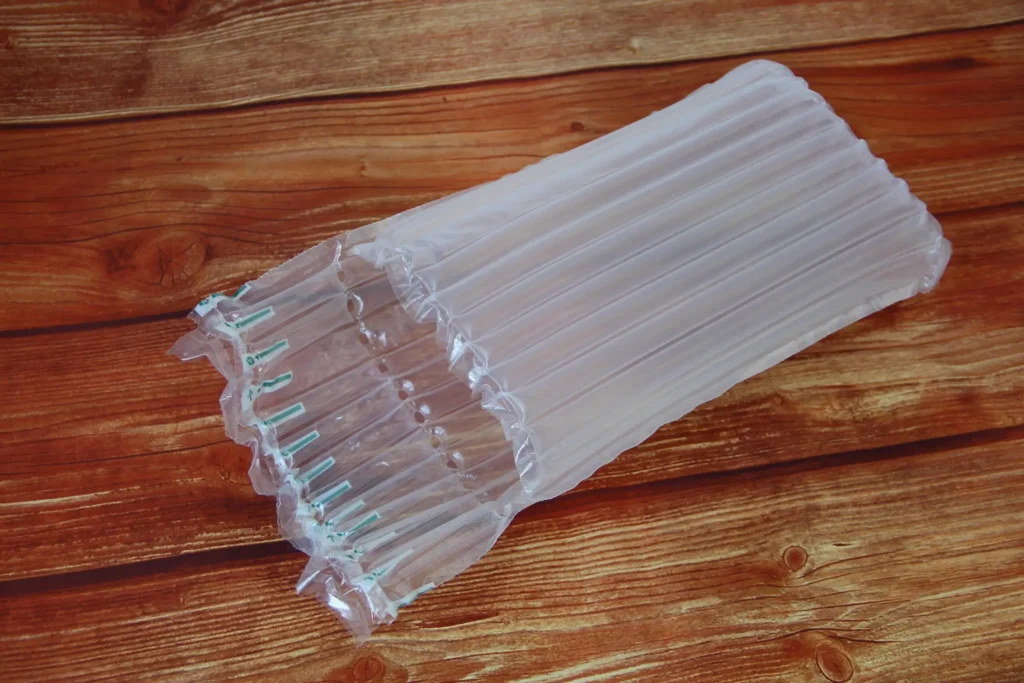
Diving deeper into alternatives to styrofoam packaging, we find another innovative solution in the form of air pillows. Sustainable options are made from eco-friendly materials and feature two layers of film with an air valve in between. Heat-pressing allows you to create a variety of sizes, shapes, and styles.
They can be shipped flat and inflated when necessary, offering a versatile void fill to use inside packaging. Made of biodegradable or recycled plastics, they offer an environmentally friendly alternative to styrofoam packing peanuts.
Their lightweight nature, composed of 99% air and 1% film, contributes to shipping efficiency. They take up less space than styrofoam and are lighter than paper, resulting in lower transportation costs.
If you order from e-commerce giants like Amazon or other small startups, you’ve seen air pillows in most packages. Their ease of use, compactness, and environmental friendliness have led to their growing popularity.
5. Biodegradable Paper Foam
Biodegradable paper foam combines the best of both worlds with its natural materials and innovative design possibilities. This starch-based product forms through a procedure that provides infinite freedom for design, detail, and colors.
The manufacturing process is as ingenious as the product itself. Starch and pulp are mixed with water and injected into a mold. As heat is applied, the mixture foams into a 3-D shape while drying out the interior moisture.
The result? A lightweight packaging material with excellent thermal and cushioning properties. The foaming process lends it superior protection against vibrations during transportation, ensuring the safety of your products. With the ability to assume any shape, it is one of the most versatile styrofoam alternatives available today.
Its unique attributes are reshaping the packaging industry by providing robust, sustainable solutions for diverse applications. Paper foam is more than an alternative to styrofoam packaging. It’s a testament to the power of natural ingredients in revolutionizing sustainable practices.
6. Seaweed Packaging
Seaweed packaging is making waves in the shipping industry. Unlike conventional styrofoam, this innovative packaging material is renewable and water-soluble.
Seaweed packaging can be cultivated and harvested with minimal environmental impact, making it a sustainable styrofoam alternative due to its renewable source material. Seaweed thrives in the ocean. There’s no need for freshwater. It will grow up to one meter tall with little human intervention.
Even more compelling is its application in food packaging and agriculture. Imagine a material that degrades and dissolves upon contact with water! It can help reduce plastic pollution in our oceans and keep marine life safe.
One company pioneering seaweed packaging production is Notpla, formerly known as Ooho! Their product, made from renewable brown seaweed, promotes ocean deacidification and oxygen production. Their packaging degrades within four weeks and is an excellent soil ameliorant. In the search for styrofoam alternatives, the solution might be under the sea!
7. Cellulose Packaging
Without question, cellulose packaging is becoming a leading contender among alternatives to styrofoam packaging. To create this product, manufacturers utilize cotton linters or wood pulp. Popularity is increasing due to the use of easy-to-source raw materials.
Since the formula includes biodegradable materials, it promotes environmental safety and can be efficiently reused, recycled, and renewed. The production process leverages plant cell walls. This organic substitute produces bioplastics that outperform conventional ones.
Cellulose packaging is renewable, compostable, and versatile. Notably, this styrofoam alternative offers barrier-protective properties, preventing the entry of oxygen, moisture, oils, and other substances inside packaging. This feature is highly sought-after in many industries.
Cellulose is the most abundant naturally occurring resource, and global production is skyrocketing. The production of cellulose packaging requires less energy compared to materials like plastics, helping reduce our carbon footprint.
8. Organic Fabrics
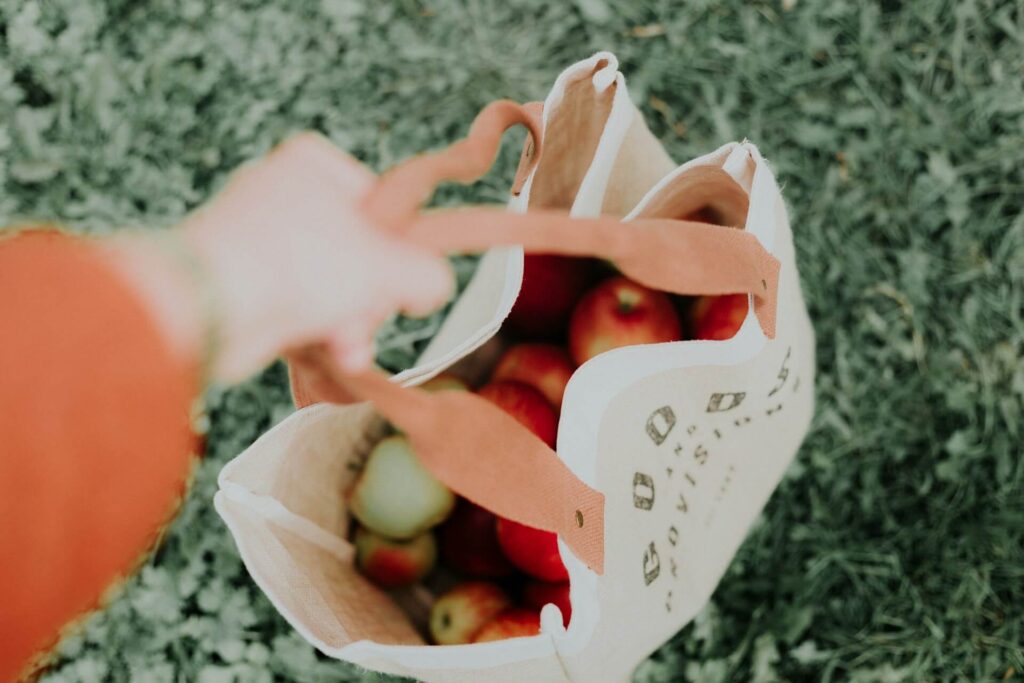
Next on our list of alternatives to styrofoam packaging is organic fabrics. These materials offer a refreshing shift away from traditional plastic bags. Organic fabrics like cotton, hemp, and jupe are biodegradable and break down naturally over time.
One of the standout features of this solution is durability. The end-of-life considerations for organic fabrics are impressive. Fabric shopping bags can be reused over and over again and remain in good condition for at least a year.
Now, we all can look forward to durable, reusable fabric bags that won’t end up in a landfill. In addition, artisanal and handmade packaging options are also gaining traction. These stylish styrofoam alternatives are shaping the future of eco-conscious business practices.
9. Biodegradable Packing Peanuts
Biodegradable packing peanuts are made of wheat and cornstarch, allowing them to break down and dissolve in water. They eliminate the risk of polluting oceans and other waterways. Notably, they offer similar cushioning and protection to their foam counterparts, with the additional benefit of not generating static electricity or sticking to clothes and electronics.
Often colored green for easy distinction, biodegradable packing peanuts are a hassle-free option for packaging. Their compostability is another remarkable feature. Unlike foam that takes centuries to decompose, biodegradable packing peanuts can dissolve in minutes when exposed to moisture and warmth.
These advantages have not gone unnoticed in the shipping and logistics industry. While less cost-effective than their foam counterparts, adoption is gradually increasing. Biodegradable packing peanuts are worth considering as styrofoam alternatives because they help reduce waste.
Shop Eco-Friendly Alternatives to Styrofoam Packaging at Gorilla Shipper
The quest to do away with styrofoam packaging is not a trend. Styrofoam harms the environment, so adopting greener alternatives is crucial to preserve the health of our planet. Fortunately, modern technologies have enabled the production of packaging solutions that are as reliable as styrofoam without its harmful effects.
If you’re looking for styrofoam alternatives to ship your products, you have come to the right place! At Gorilla Shipper, we offer a wide range of biodegradable packaging solutions for shipping glass bottles, jars, vases, and other fragile items to ensure they’re delivered safely. All our packaging solutions are ISTA 6-FEDEX-A test-certified and approved.
Contact us if you need more information about any of our products. Shop eco-friendly packaging and enjoy big discounts on bulk orders!


